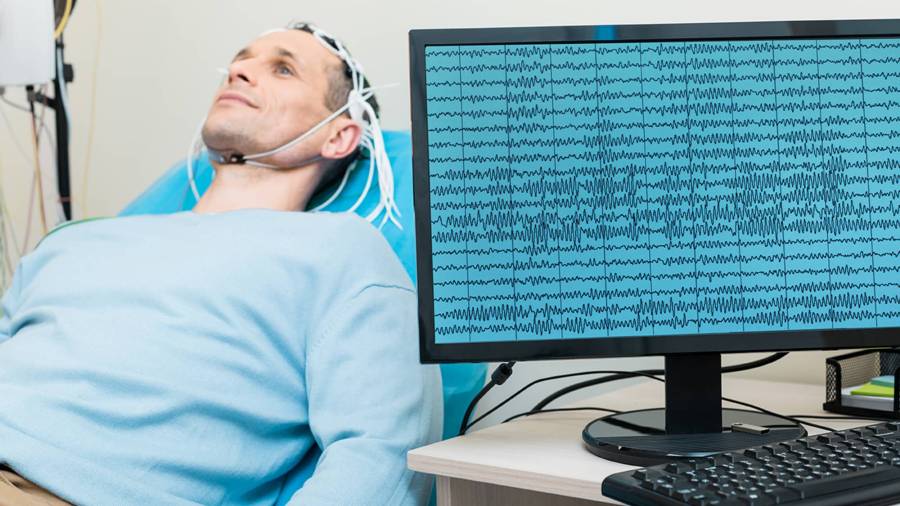How does hypnosis affect the brainwaves during EEG?

Hypnosis and the EEG: How hypnosis affects the brainwaves EEG
The term "hypnosis" comes from the ancient Greek word "hýpnos", which means "sleep", and for a long time it had actually also been believed that the hypnotic trance was a form of sleep. But modern, scientific methods have exposed this as an error. Especially in the EEG, the differences between sleep, deep relaxation and hypnotic trance show up very clearly.
But how exactly does hypnosis work?
In fact, hypnosis decreases the level of wakefulness (cerebral state monitor (CSM), as determined, for example, for anesthesia, falls below the measure of resting state with eyes open into the range required even for mild anesthesia. Nevertheless, the cerebral state monitor (CSM) shows increased alpha activity, suggestive of focused attention, which has not been detected under anesthesia or during sleep.
The hallmarks of this state of hypnotic trance are calm, fluid thinking, blissful relaxation, a confident underlying mood, and a sense of mind-body integration. Magnetic resonance imaging (MRI) also shows increased activity in the area of the brain responsible for imaginations, plans, and daydreams.
The hallmarks of this state of hypnotic trance are calm, fluid thinking, blissful relaxation, a confident underlying mood, and a sense of mind-body integration. Magnetic resonance imaging (MRI) also shows increased activity in the area of the brain responsible for imaginations, plans, and daydreams.
Hypnosis and science
Here you will find an overview of the topics of hypnosis in science:

Hypnosis Berlin
By Mina
Self-test - Am I hypnotizable?
Test yourself!
Find out how well you can be hypnotized and take the self-test on your own hypnotizability (suggestibility) and answer 12 questions shortly.

Bin ich hypnotisierbar?
You can find more information about hypnosis and our hypnotherapy sessions in the FAQ section and more specifics about the hypnotherapy procedure here.
 Children
Children Phobias
Phobias Physical
Physical Profession
Profession Psychosomatic
Psychosomatic Relationship
Relationship Self-Growth
Self-Growth Stress
Stress
